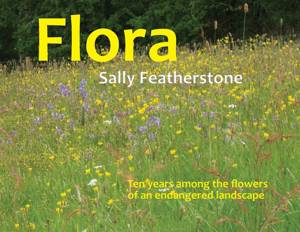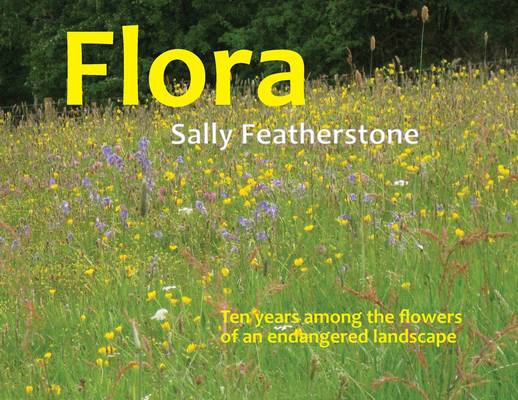
- Retrait gratuit dans votre magasin Club
- 7.000.000 titres dans notre catalogue
- Payer en toute sécurité
- Toujours un magasin près de chez vous
- Retrait gratuit dans votre magasin Club
- 7.000.0000 titres dans notre catalogue
- Payer en toute sécurité
- Toujours un magasin près de chez vous
Flora
ten years among the flowers of an endangered landscape
Sally FeatherstoneDescription
The unrestricted use of fertilisers, herbicides and insecticides has led to a careless destruction of the flowers, birds, insects and animals that previously enriched our countryside. This book attempts to capture the essence of the flowers that have decorated the seven unique hay meadows of a West Yorkshire farm at the turn of the 21st Century, a critical time for the planet. These seven fields are a precious few of the last natural hay meadows remaining in our country.
Thankfully, hanging on in pockets, often away from centres of population, there are small havens where habitats have been preserved. In these areas, sometimes helped by Government grant, farmers, volunteers, conservationists and private individuals have made a commitment to maintaining a landscape which our ancestors would recognise. In these meadows Buttercups spill down slopes, Bluebells carpet field edges, and the sunny faces of Dandelions are welcomed, not seen as nuisance weeds.
As soon as I arrived in this clenched winter landscape, I began to record the wildlife and particularly the plants of these fields as it emerged into the spring sunshine. With my iPhone always in my pocket, and a series of notebooks to record the details, I began to keep a diary supported by hundreds of photographs, collected as I watched the changing seasons and recorded the growth of the grasses and wildflowers, and the wildlife they support in this tiny haven of the Yorkshire countryside.
Flora is the product of a decade of a life governed by the weather, the seasons and the management of the meadows. The process of natural haymaking, where grass is grown without artificial fertilisers or weed killers, and cut just once a year, allows a unique range of wild plants to thrive among the many species of grasses that flourish in such conditions. I found 80 different flowering plants in these meadows, and in their paths and 'edgelands', where butterflies, moths and other insects float and flutter, birds swoop low above the seed heads, and other wildlife lives unseen among the uncut grasses and stone walls of these upland fields.
It took 6,000 years to create the species-rich grassland for which the UK is globally famous, but since the nineteen thirties over ninety seven percent of these wildflower meadows and other species-rich grasslands have been lost, and now cover less than 1% of the UK. Flora celebrates just one part of the rich and diverse landscape of our country, that once gone can never be replaced. These meadows, and the flowers that grow there, are in danger - Flora is intended to remind us of their beauty, the fragile nature of their future, and the often unseen wildlife that depends on them. We owe it to our children and their children to preserve the richness of this unique environment, so they can walk among the flowering hay fields of the future.
Spécifications
Parties prenantes
- Auteur(s) :
- Editeur:
Contenu
- Nombre de pages :
- 208
- Langue:
- Anglais
Caractéristiques
- EAN:
- 9781739745516
- Date de parution :
- 04-07-22
- Format:
- Livre broché
- Format numérique:
- Trade paperback (VS)
- Dimensions :
- 279 mm x 216 mm
- Poids :
- 680 g

Les avis
Nous publions uniquement les avis qui respectent les conditions requises. Consultez nos conditions pour les avis.






